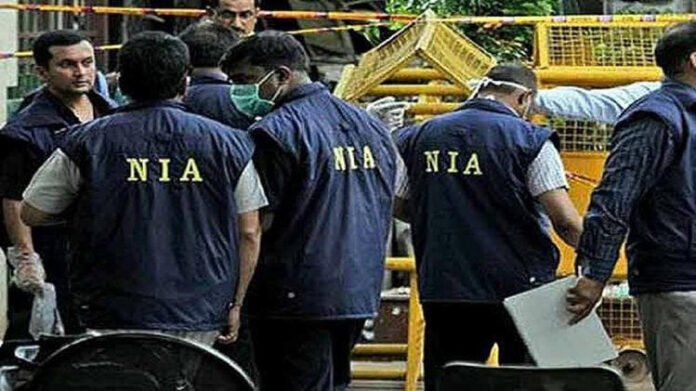The National Investigation Agency (NIA) arrested 25 individuals in Tripura during 2022-2023. This coordinated crackdown has exposed a sprawling racket involving cross-border trafficking and exploitation, shedding light on the urgent need for heightened vigilance in the region.
The Human Trafficking Nexus in Tripura
Tripura, sharing a porous border with Bangladesh, has long been a hotspot for illegal cross-border activities. The state’s geographic position makes it vulnerable to trafficking networks that exploit socio-economic vulnerabilities. Women, children, and marginalized communities often become easy targets, lured by false promises of employment and better living conditions.
The NIA’s investigation uncovered a well-organized network operating across state and national borders. Victims were reportedly trafficked to neighboring countries like Bangladesh and Myanmar, as well as to other parts of India. The operations often involved forged documents, fake identities, and the complicity of local handlers.
The Crackdown: Timeline and Key Arrests
The NIA’s crackdown began in early 2022, following intelligence reports about trafficking activities in Tripura. Over the course of two years, the agency conducted multiple raids, rescued victims, and apprehended key suspects.
Key Highlights of the Operation:
- Arrests: A total of 25 individuals were arrested, including kingpins, recruiters, and intermediaries. Many of the accused had links to organized crime syndicates.
- Rescues: Several victims, including minors, were rescued from transit locations and trafficking hubs.
- Seized Evidence: Authorities recovered forged documents, mobile phones, bank transaction records, and other incriminating evidence during the raids.
- International Links: Investigations revealed that the network had strong connections with similar groups in Bangladesh and Myanmar, making this a transnational operation.
Victims’ Stories: A Glimpse Into the Dark Reality
The rescued victims’ accounts provide harrowing insights into the modus operandi of the traffickers. Many were promised jobs in cities or abroad, only to find themselves trapped in exploitative conditions. Women were forced into domestic servitude or the sex trade, while children were subjected to forced labor.
A 17-year-old girl rescued during one of the raids recounted how she was lured with the promise of a housekeeping job in Kolkata but was instead sold to traffickers. Her story is just one among many that highlight the deep-seated vulnerabilities exploited by these criminal networks.
The Role of the NIA and Other Agencies
The success of the operation can be attributed to the collaborative efforts of the NIA, state police, and other law enforcement agencies. Intelligence-sharing and coordinated action were critical in dismantling the network.
The NIA has also emphasized the need for community awareness and participation in combating trafficking. Local communities play a crucial role in identifying suspicious activities and reporting them to authorities. Awareness campaigns, especially in rural and border areas, are being planned to educate people about the dangers of trafficking and how to avoid falling prey to such schemes.
Challenges and the Way Forward
While the recent arrests are a significant step forward, combating human trafficking in Tripura remains a daunting task. Challenges include:
- Porous Borders: The 856-km border with Bangladesh is difficult to monitor comprehensively, allowing traffickers to operate with relative ease.
- Socio-Economic Factors: Poverty and lack of education make many communities vulnerable to exploitation.
- Limited Resources: Law enforcement agencies often face resource constraints, impacting their ability to conduct sustained operations.
Policy and Legal Interventions
The government has been ramping up efforts to address human trafficking through stricter laws and better enforcement mechanisms. The NIA has called for enhanced border security, better surveillance technology, and stronger international collaboration to curb transnational trafficking networks.
Additionally, NGOs and civil society organizations are stepping in to support victims’ rehabilitation and reintegration into society. Providing counseling, skill development, and livelihood opportunities is crucial to breaking the cycle of exploitation.
Conclusion
The arrest of 25 individuals involved in human trafficking in Tripura marks a pivotal moment in the fight against this heinous crime. While the crackdown is a commendable achievement, it also underscores the persistent challenges that remain. By fostering collaboration among law enforcement, policymakers, and communities, Tripura can pave the way for a safer future, free from the clutches of trafficking networks. The operation serves as a stark reminder of the importance of vigilance, awareness, and collective action in eradicating human trafficking from its roots.


